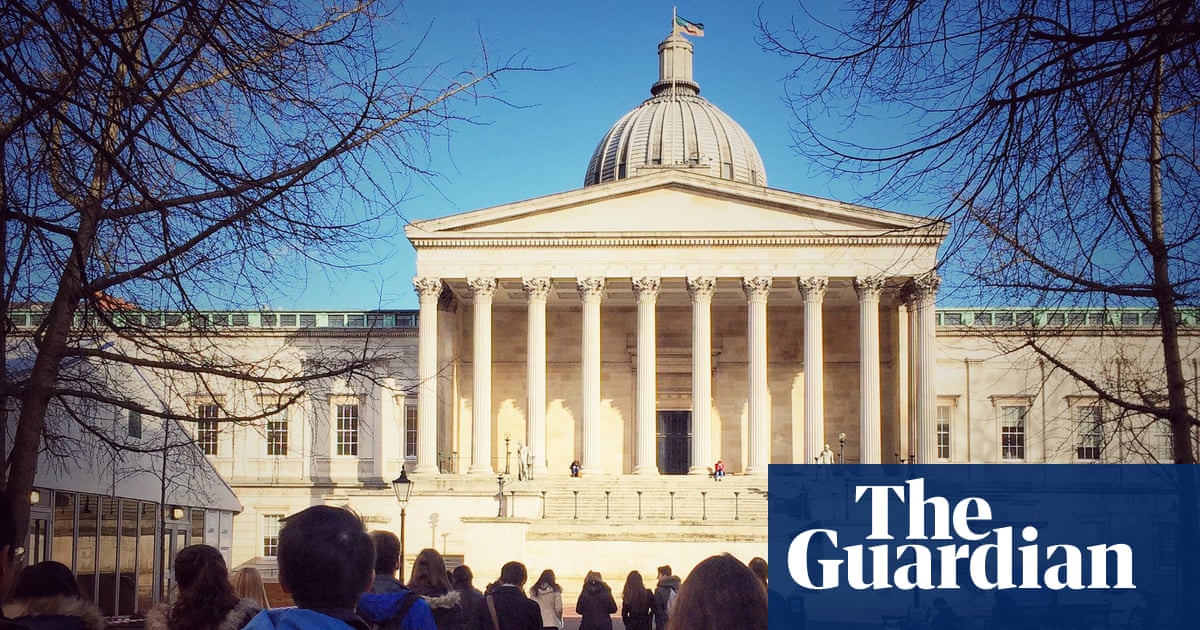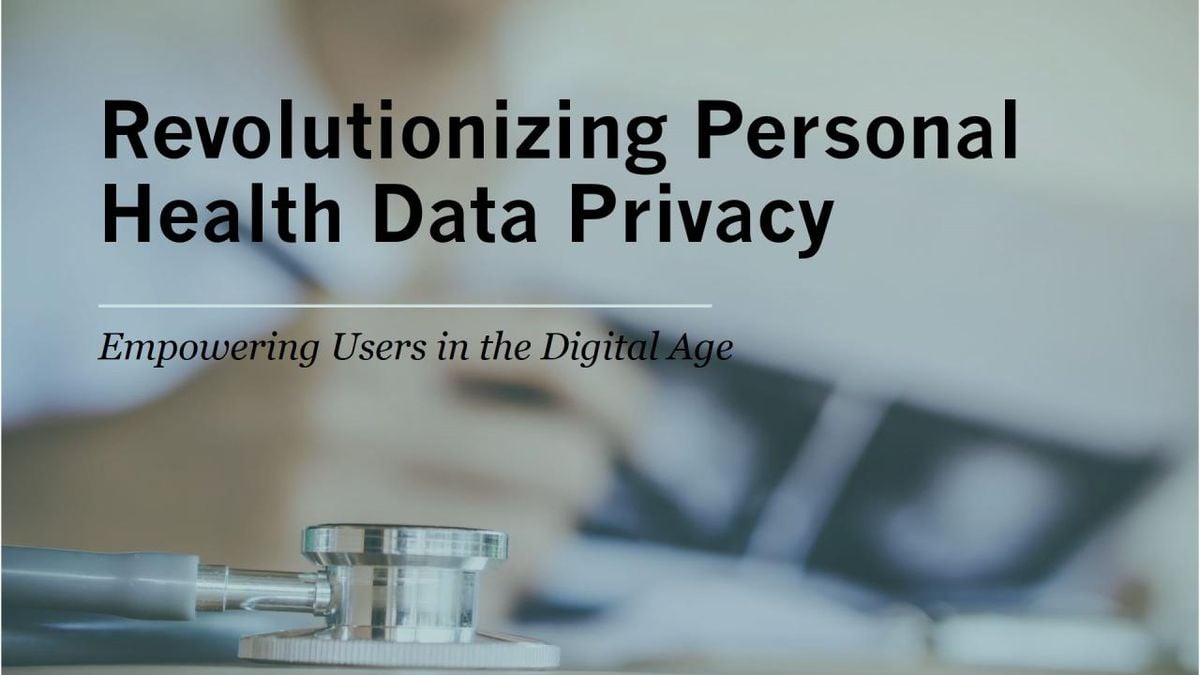Machine learning-based analytics of the impact of the Covid-19 pandemic on alcohol consumption habit changes among United States healthcare workers

Huang, C. et al. (2020) Clinical features of patients infected with 2019 novel coronavirus in Wuhan, China. The Lancet 395, 497–506 (2020).
Google Scholar
Rezapour, M. & Hansen, L. A machine learning analysis of COVID-19 mental health data. Sci. Rep. 12, 1–16 (2022).
Google Scholar
Spoorthy, M., Pratapa, S. K. & Mahant, S. Mental health problems faced by healthcare workers due to the COVID-19 pandemic—A review. Asian J. Psychiatry 51, 102119 (2020).
Google Scholar
Vizheh, M. et al. The mental health of healthcare workers in the COVID-19 pandemic: A systematic review. J. Diabetes Metabolic Disord. 19, 1967–1978 (2020).
Google Scholar
Lai, J. et al. Factors associated with mental health outcomes among health care workers exposed to coronavirus disease 2019. JAMA Netw. Open 3, e203976–e203976 (2020).
Google Scholar
Lima, C. K. T. et al. The emotional impact of Coronavirus 2019-nCoV (new Coronavirus disease). Psychiatry Res. 287, 112915 (2020).
Google Scholar
Greenberg, N., Docherty, M., Gnanapragasam, S. & Wessely, S. Managing mental health challenges faced by healthcare workers during covid-19 pandemic. BMJ 368, 1 (2020).
Di Tella, M., Romeo, A., Benfante, A. & Castelli, L. Mental health of healthcare workers during the COVID-19 pandemic in Italy. J. Eval. Clin. Pract. 26, 1583–1587 (2020).
Google Scholar
Chirico, F., Nucera, G. & Magnavita, N. Protecting the mental health of healthcare workers during the COVID-19 emergency. BJPsych Int. 18, 1 (2021).
Google Scholar
Yang, L., Yin, J., Wang, D., Rahman, A. & Li, X. Urgent need to develop evidence-based self-help interventions for mental health of healthcare workers in COVID-19 pandemic. Psychol. Med. 51, 1775–1776 (2021).
Google Scholar
Chatzittofis, A., Karanikola, M., Michailidou, K. & Constantinidou, A. Impact of the COVID-19 pandemic on the mental health of healthcare workers. Int. J. Environ. Res. Public health 18, 1435 (2021).
Google Scholar
Beiter, K. J., Wiedemann, R. P., Thomas, C. L. & Conrad, E. J. Alcohol consumption and COVID-19–Related stress among health care workers: The need for continued Stress-Management interventions. Public Health Rep. 137(2), 326–335 (2022).
Google Scholar
Mongeau-Pérusse, V. et al. Changes in alcohol habits among workers during the confinement of COVID-19: Results of a Canadian cross-sectional survey. Substance Abuse: Res. Treatment 15, 11782218211033298 (2021).
Pomazal, R. et al. Changes in alcohol consumption during the COVID-19 pandemic: Evidence from wisconsin. Int. J. Environ. Res. Public Health 20(7), 5301 (2023).
Google Scholar
Mota, I. A., de Oliveira Sobrinho, G. D., Morais, I. P. S. & Dantas, T. F. Impact of COVID-19 on eating habits, physical activity and sleep in Brazilian healthcare professionals. Arq. Neuropsiquiatr. 79, 429–436 (2021).
Google Scholar
Calina, D. et al. COVID-19 pandemic and alcohol consumption: Impacts and interconnections. Toxicol. Rep. 8, 529–535 (2021).
Google Scholar
Saladino, V., Algeri, D. & Auriemma, V. The psychological and social impact of Covid-19: new perspectives of well-being. Front. Psychol. 1, 2520 (2020).
Orgilés, M., Morales, A., Delvecchio, E., Mazzeschi, C. & Espada, J. P. Immediate psychological effects of the COVID-19 quarantine in youth from Italy and Spain. Front. Psychol. 1, 2986 (2020).
Brooks, S. K. et al. The psychological impact of quarantine and how to reduce it: Rapid review of the evidence. The Lancet 395(10227), 912–920 (2020).
Google Scholar
Bai, YaMei et al. Survey of stress reactions among health care workers involved with the SARS outbreak. Psychiatr. Serv. 55(9), 1055–1057 (2004).
Google Scholar
Lai, J. et al. Factors associated with mental health outcomes among health care workers exposed to coronavirus disease 2019. JAMA Netw. Open 3(3), e203976 (2020).
Google Scholar
De Kock, J. H. et al. A rapid review of the impact of COVID-19 on the mental health of healthcare workers: implications for supporting psychological well-being. BMC Public Health 21(1), 1–18 (2021).
Lalmuanawma, S., Hussain, J. & Chhakchhuak, L. Applications of machine learning and artificial intelligence for Covid-19 (SARS-CoV-2) pandemic: A review. Chaos Solitons Fractals 139, 110059 (2020).
Google Scholar
Zhou, X., Ma, X., Hong, Na., Su, L., Ma, Y., He, J., Jiang, H., Liu, C., Shan, G., Zhu, W., et al. Forecasting the worldwide spread of COVID-19 based on logistic model and SEIR model. MedRxiv (2020).
Gupta, A. K., Singh, V., Mathur, P. & Travieso-Gonzalez, C. M. Prediction of COVID-19 pandemic measuring criteria using support vector machine, prophet and linear regression models in Indian scenario. J. Interdiscip. Math. 24(1), 89–108 (2021).
Google Scholar
Ekum, M. & Ogunsanya, A. Application of hierarchical polynomial regression models to predict transmission of COVID-19 at global level. Int. J. Clin. Biostat. Biom. 6(1), 27 (2020).
Vaishya, R., Javaid, M., Khan, I. H. & Haleem, A. Artificial Intelligence (AI) applications for COVID-19 pandemic. Diabetes Metabolic Syndrome Clin. Res. Rev. 14(4), 337–339 (2020).
Google Scholar
Mondal, M. R. H., Bharati, S. & Podder, P. Diagnosis of COVID-19 using machine learning and deep learning: A review. Curr. Med. Imaging 17, 1403–1418 (2021).
Google Scholar
Gambhir, E., Jain, R., Gupta, A., Tomer, U. Regression analysis of COVID-19 using machine learning algorithms. In 2020 International Conference on Smart Electronics and Communication (ICOSEC), 65–71 (IEEE, 2020).
Kushwaha, S. et al. Significant applications of machine learning for COVID-19 pandemic. J. Ind. Integrat. Manag. 5, 453–479 (2020).
Google Scholar
Benvenuto, D., Giovanetti, M., Vassallo, L., Angeletti, S. & Ciccozzi, M. Application of the ARIMA model on the COVID-2019 epidemic dataset. Data Brief 29, 105340 (2020).
Google Scholar
Kucharski, A. J. et al. Early dynamics of transmission and control of COVID-19: a mathematical modelling study. The Lancet Infect. Dis. 20, 553–558 (2020).
Google Scholar
Zivkovic, M., Bacanin, N., Djordjevic, A., Antonijevic, M., Strumberger, I., Rashid, T.A., et al. Hybrid genetic algorithm and machine learning method for covid-19 cases prediction. In Proceedings of International Conference on Sustainable Expert Systems, 169–184 (Springer, 2021).
Vrindavanam, J., Srinath, R., Shankar, H. H., Nagesh, G. Machine learning based COVID-19 cough classification models-a comparative analysis. In 2021 5th International Conference on Computing Methodologies and Communication (ICCMC), 420–426 (IEEE, 2021).
Rezapour, M. & Elmshaeuser, S. K. Artificial intelligence-based analytics for impacts of COVID-19 and online learning on college students’ mental health. PLoS ONE 17(11), e0276767 (2022).
Google Scholar
Rezapour, M., & Varady, C. A. A machine learning analysis of the relationship between some underlying medical conditions and COVID-19 susceptibility. arXiv preprint arXiv:2112.12901 (2021).
Conroy, D. A. et al. The effects of COVID-19 stay-at-home order on sleep, health, and working patterns: a survey study of US health care workers. J. Clin. Sleep Med. 17, 185–191 (2021).
Google Scholar
Conroy, D., & Goldstein, C. COVID Isolation on Sleep and Health in Healthcare Workers. Ann Arbor, MI: Inter-university Consortium for Political and Social Research (distributor), 2020-11-20. (Online).
Greenwood, P. E., Nikulin, Michael S, A guide to chi-squared testing, John Wiley \& Sons, 1996.
Vergara, J. R. & Estévez, P. A. A review of feature selection methods based on mutual information. Neural Comput. Appl. 24, 175–186 (2014).
Google Scholar
Menard, S. Applied Logistic Regression Analysis (Sage, 2002).
Wright, R. E. Logistic regression (American Psychological Association, 1995).
Steinwart, I., & Christmann, A. Support Vector Machines (Springer, 2008).
Hearst, M. A., Dumais, S. T., Osuna, E., Platt, J. & Scholkopf, B. Support vector machines. IEEE Intell. Syst. Appl. 13, 18–28 (1998).
Google Scholar
Wang, S.-C. Artificial neural network. In Interdisciplinary Computing in Java Programming, 81–100 (Springer, 2003).
Hecht-Nielsen, R. Theory of the backpropagation neural network. In Neural Networks for Perception, 65–93 (Elsevier, 1992).
Goodfellow, I., Bengio, Y., & Courville, A. Deep Learning (MIT Press, 2016).
LeCun, Y., Bengio, Y. & Hinton, G. Deep learning. Nature 521, 436–444 (2015).
Google Scholar
Schmidhuber, J. Deep learning in neural networks: An overview. Neural Netw. 61, 85–117 (2015).
Google Scholar
Bishop, C. M., & Nasrabadi, N. M. Pattern Recognition and Machine Learning (Springer, 2006).
Chen, T., & Guestrin, C. Xgboost: A scalable tree boosting system. In Proceedings of the 22nd ACM SIGKDD International Conference on Knowledge Discovery and Data Mining, 785–794.
Chen, T., He, T., Benesty, M., Khotilovich, V., Tang, Y., Cho, H., Chen, K., et al. Xgboost: extreme gradient boosting. R package version 0.4–2, 1, 1–4 (2015).
Ke, G. et al. Lightgbm: A highly efficient gradient boosting decision tree. Adv. Neural Inf. Process. Syst. 30, 1 (2017).
Dorogush, A. V., Ershov, V., Gulin, A. CatBoost: gradient boosting with categorical features support. arXiv preprint arXiv:1810.11363.
Freund, Y. & Schapire, R. E. A decision-theoretic generalization of on-line learning and an application to boosting. J. Comput. Syst. Sci. 55(1), 119–139 (1997).
Google Scholar
Chawla, N. V., Bowyer, K. W., Hall, L. O. & Kegelmeyer, W. P. SMOTE: synthetic minority over-sampling technique. J. Artif. Intell. Res. 16, 321–357 (2002).
Google Scholar
Chaturvedi, A., Green, P. E. & Caroll, J. D. K-modes clustering. J. Classif. 18(1), 35–55 (2001).
Google Scholar
Boschuetz, N., Cheng, S., Mei, L. & Loy, V. M. Changes in alcohol use patterns in the United States during COVID-19 pandemic. WMJ 119, 171–176 (2020).
Google Scholar
Acuff, S. F., Strickland, J. C., Tucker, J. A. & Murphy, J. G. Changes in alcohol use during COVID-19 and associations with contextual and individual difference variables: A systematic review and meta-analysis. Psychol. Addict. Behav. 36, 1 (2022).
Google Scholar
Melnyk, B. M. et al. Associations among nurses’ mental/physical health, lifestyle behaviors, shift length, and workplace wellness support during COVID-19: important implications for health care systems. Nurs. Adm. Q. 46, 5 (2022).
Google Scholar
Cooper, M. L., Russell, M. & Frone, M. R. Work stress and alcohol effects: A test of stress-induced drinking. J. Health Soc. Behav. 1, 260–276 (1990).
Google Scholar
Ahn, T. Reduction of working time: Does it lead to a healthy lifestyle?. Health Econ. 25, 969–983 (2016).
Google Scholar
Frone, M. R. Work stress and alcohol use. Alcohol Res. Health 23, 284 (1999).
Google Scholar
Huber, B. C., Steffen, J., Schlichtiger, J. & Brunner, S. Altered nutrition behavior during COVID-19 pandemic lockdown in young adults. Eur. J. Nutrit. 60(5), 2593–2602 (2021).
Google Scholar
Yeomans, M. R., Caton, S. & Hetherington, M. M. Alcohol and food intake. Curr. Opin. Clin. Nutrit. Metabolic Care 6(6), 639–644 (2003).
Google Scholar
Villanueva-Blasco, V. J. et al. Age and living situation as key factors in understanding changes in alcohol use during COVID-19 confinement. Int. J. Environ. Res. Public Health 18, 11471 (2021).
Google Scholar
Härkönen, J. T. A. P. M. Age, period and cohort analysis of light and binge drinking in Finland, 1968–2008. Alcoh. Alcoh. 46, 349–356 (2011).
Google Scholar
Hamilton, J. L., Hamlat, E. J., Stange, J. P., Abramson, L. Y. & Alloy, L. B. Pubertal timing and vulnerabilities to depression in early adolescence: Differential pathways to depressive symptoms by sex. J. Adoles. 37, 165–174 (2014).
Google Scholar
Villanueva-Blasco, V. J. et al. Changes in alcohol consumption pattern based on gender during COVID-19 confinement in Spain. In. J. Environ. Res. Public Health 18, 8028 (2021).
Google Scholar
Verma, R., Balhara, Y. P. S. & Gupta, C. S. Gender differences in stress response: Role of developmental and biological determinants. Ind. Psychiatry J. 20, 4 (2011).
Google Scholar
Klein, H. & Pittman, D. J. Regional differences in alcohol consumption and drinkers’ attitudes toward drinking. Am. J. Drug Alcoh. Abuse 19, 523–538 (1993).
Google Scholar
Brenner, A. B., Bauermeister, J. A. & Zimmerman, M. A. Neighborhood variation in adolescent alcohol use: Examination of socioecological and social disorganization theories. J. Stud. Alcohol Drugs 72, 651–659 (2011).
Google Scholar
Imaki, M., Hatanaka, Y., Ogawa, Y., Yoshida, Y. & Tanada, S. An epidemiological study on relationship between the hours of sleep and life style factors in Japanese factory workers. J. Physiol. Anthropol. Appl. Hum. Sci. 21, 115–120 (2002).
Google Scholar
Miller, M. B., DiBello, A. M., Lust, S. A., Carey, M. P. & Carey, K. B. Adequate sleep moderates the prospective association between alcohol use and consequences. Addict. Behav. 63, 23–28 (2016).
Google Scholar
Du, C. et al. The effects of sleep quality and resilience on perceived stress, dietary behaviors, and alcohol misuse: a mediation-moderation analysis of higher education students from Asia, Europe, and North America during the COVID-19 pandemic. Nutrients 13, 442 (2021).
Google Scholar
Chartier, K. G., Guidry, J. P. D., Lee, C. A. & Buckley, T. D. At home and online during the early months of the COVID-19 pandemic and the relationship to alcohol consumption in a national sample of US adults,”. PLoS ONE 16(11), e0259947 (2021).
Google Scholar
Engels, R. C. M. E., Hermans, R., Van Baaren, R. B., Hollenstein, T. & Bot, S. M. Alcohol portrayal on television affects actual drinking behaviour. Alcoh. Alcoh. 44, 244–249 (2009).
Google Scholar
Stainback, K., Hearne, B. N. & Trieu, M. M. COVID-19 and the 24/7 news cycle: Does COVID-19 news exposure affect mental health?. Socius 6, 2378023120969339 (2020).
Google Scholar
Lavin, J., Pallister, C. & Greenwood, L. The government must do more to raise awareness of the links between alcohol and obesity, rather than treating them as separate issues. Perspect. Public Health 136, 123–124 (2016).
Google Scholar
Lourenço, S., Oliveira, A. & Lopes, C. The effect of current and lifetime alcohol consumption on overall and central obesity. Eur. J. Clin. Nutr. 66, 813–818 (2012).
Google Scholar
Youngerman, B., & Kittleson, M. J. The Truth About Alcohol (Infobase Publishing, 2005).
Tebar, W. R. et al. Increased screen time is associated with alcohol desire and sweetened foods consumption during the COVID-19 pandemic. Front. Nutrit. 8, 630586 (2021).
Google Scholar
Schmits, E. & Glowacz, F. Changes in alcohol use during the COVID-19 pandemic: Impact of the lockdown conditions and mental health factors. Int. J. Ment. Heal. Addict. 20, 1147–1158 (2022).
Google Scholar
Caluzzi, G. et al. Beyond ‘drinking occasions’: examining complex changes in drinking practices during COVID-19. Drug Alcohol Rev. 41, 1267–1274 (2022).
Google Scholar
link







